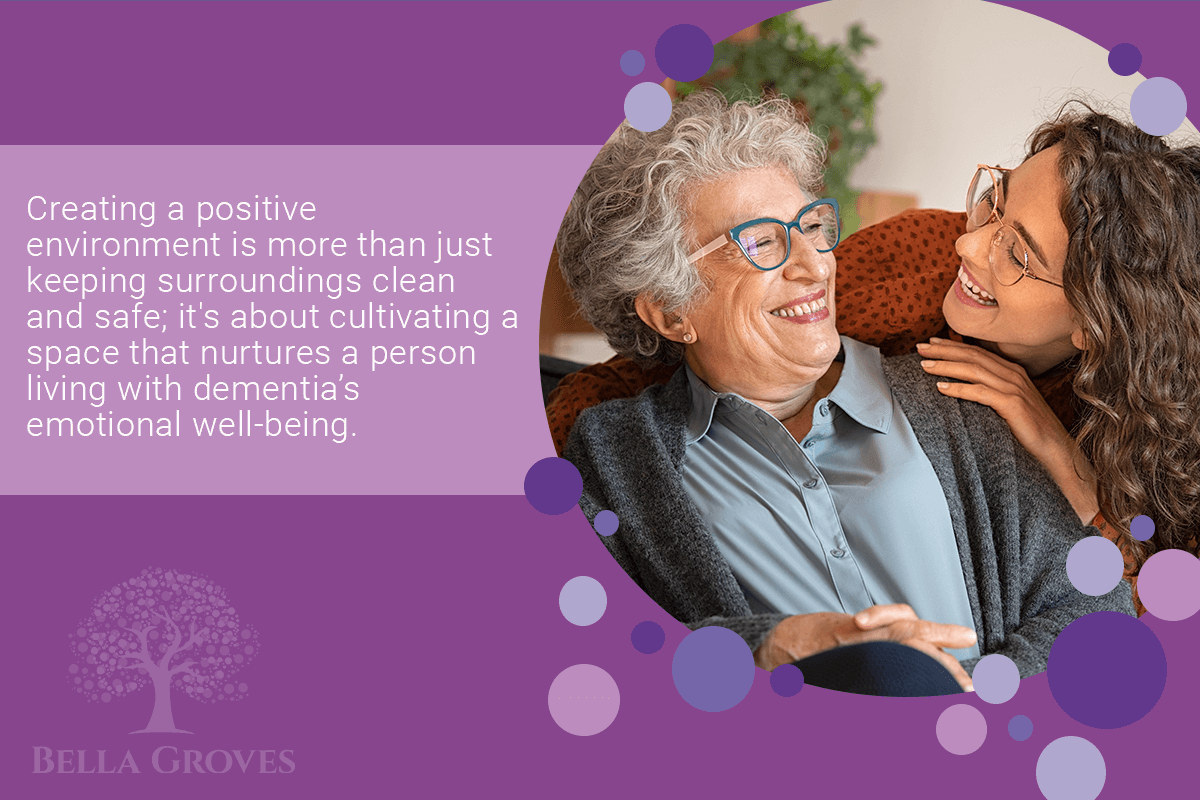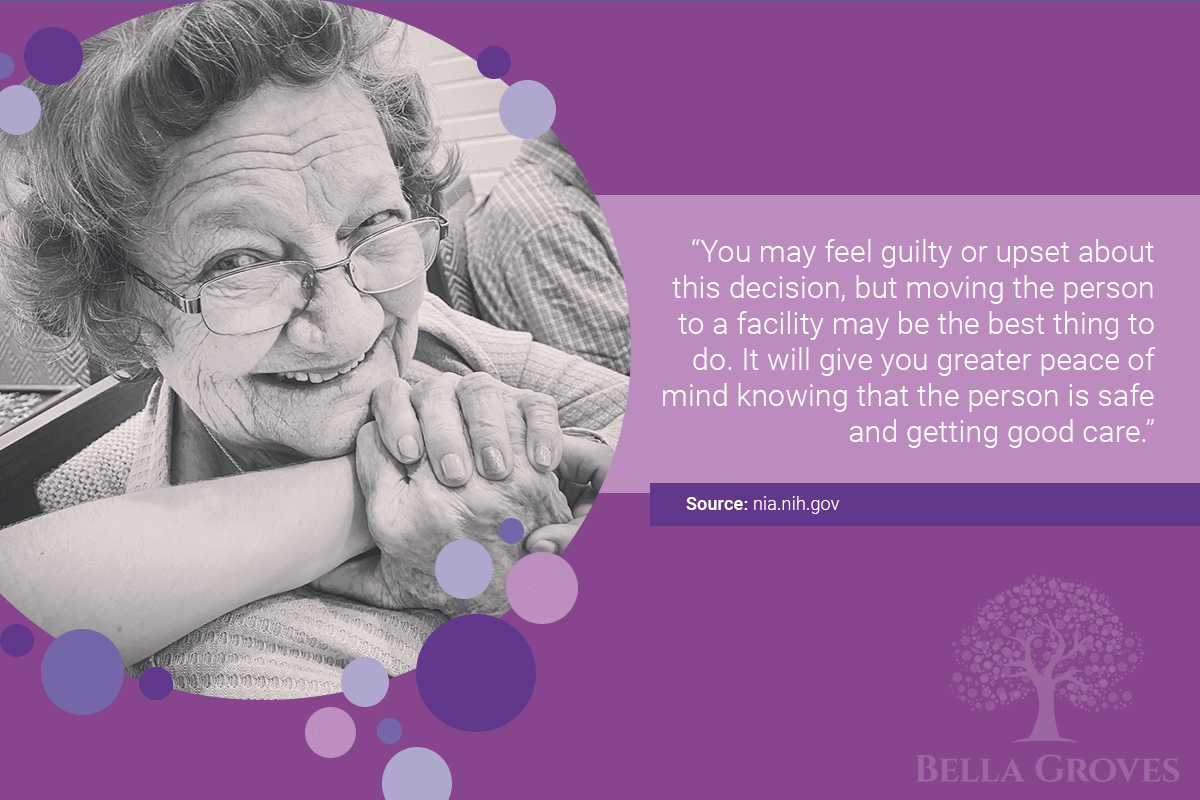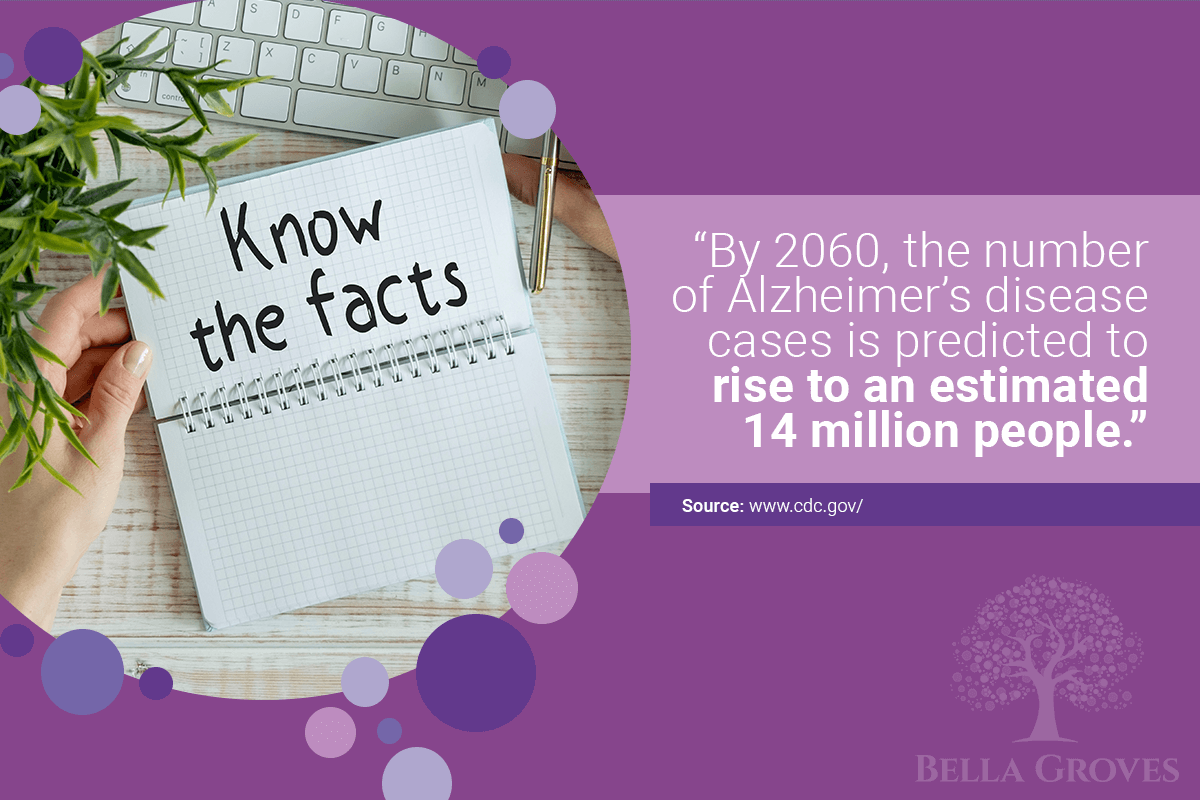
The Power of Positivity in Dementia Care
Navigating dementia can be a challenging task for individuals and families. Dementia, a collective term for conditions characterized by a decline in memory, language, problem-solving, and other thinking skills, can cause individuals to feel disoriented, anxious, and disconnected. It can also have the same effect on care partners and family members coping with a loved one living with dementia.
But what if we told you that positivity can light the way through this complex maze? Yes, maintaining an uplifting environment and positive interactions can significantly enhance the well-being of a person living with dementia.
At Bella Groves, we believe that unconditional joy is the key to navigating a dementia diagnosis, whether creating special moments with loved ones or finding bright moments during the darkest times. We’re sharing how positivity is pivotal in dementia care and providing strategies for incorporating it into your daily care routine.
Maintaining a Positive Environment
Creating a positive environment is more than just keeping surroundings clean and safe; it’s about cultivating a space that nurtures a person living with dementia’s emotional well-being. This involves eliminating potential stressors, like loud noises or clutter, and incorporating comforting elements such as familiar objects, soothing colors, or favorite music.
The aim is to make the environment feel supportive, calm, and comfortable. Remember, a positive environment not only boosts the mood but also helps reduce confusion and agitation.
The Role of Positive Communication
Communication is a two-way street, especially in dementia care. It’s crucial to use clear and simple language, maintaining a positive tone. This doesn’t mean sugar-coating reality but rather delivering messages in a gentle and reassuring manner. Practice active listening and show empathy, reinforcing that their feelings and thoughts are valid and important. Whether it’s a casual conversation or a discussion about their care, positivity should underline all communication.
The Impact of Positive Interactions on Well-being
There’s a saying, “A little bit of kindness can go a long way,” and this holds true in dementia care. Positive interactions, filled with respect, patience, and warmth, can have a profound impact on the well-being of a person with dementia. They can enhance mood, reduce anxiety, and even stimulate cognitive function.
Simple acts, like sharing a laugh, reminiscing old memories, or even holding hands, can foster a deep connection and make a significant difference in their day.
Strategies for Incorporating Positivity in Daily Care
Caring for a person living with dementia goes beyond the medical aspect; it’s about enhancing their quality of life at every step. Here are some strategies to introduce positivity into your daily care routine:
- Engage in Meaningful Activities: Participate in activities that your loved one enjoys or finds meaningful. It could be as simple as folding laundry, baking cookies, or gardening.
- Encourage Social Interactions: Facilitate interactions with friends, family, or community members. Socialization helps combat feelings of isolation.
- Promote Physical and Mental Well-being: Encourage regular exercise and mental stimulation activities, like puzzles or memory games. This can enhance both physical and cognitive health.
- Celebrate Small Victories: Acknowledge and celebrate even minor accomplishments. It could be successfully remembering a name, completing a puzzle, or simply having a good day. These small victories can be a source of joy and a self-esteem boost.
Addressing Misconceptions About Dementia Care
Several misconceptions surround dementia, often leading to misunderstandings and misguided approaches. Let’s debunk some of them:
- Dementia is a Normal Part of Aging: While aging is a risk factor for dementia, it’s not an inevitable part of getting older.
- Those Living with Dementia Have No Awareness and Perception: Despite memory loss, individuals living with dementia often have a sense of their surroundings and can perceive emotions.
- Negative Emotions are Always Present: While dementia can be associated with frustration or sadness, positive emotions and experiences are equally possible.
The journey through dementia is undoubtedly challenging, but the power of positivity can act as a beacon of hope, illuminating the path for individuals and families. By creating a positive environment, engaging in uplifting interactions, and encouraging enjoyable activities, we can significantly enhance the quality of life for those living with dementia.
To all caregivers and family members, remember that your compassion, patience, and positivity are more powerful than you realize. So, let’s continue to shine the light of positivity, making a difference one smile at a time.
The core of our mission at Bella Groves is to ensure no person or family feels like they are navigating dementia alone. If you have questions about your dementia care journey, we invite you to call us at (210) 201-6951 or email us at hello@bellagroves.com.


